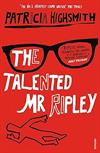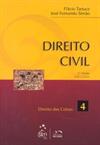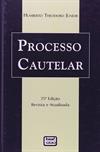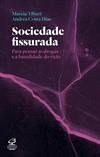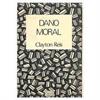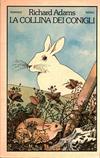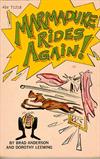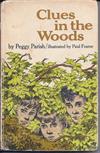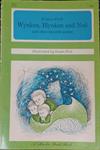
The Ugly American
by William Julius Lederer, Eugene Burdick | Literature & Fiction | This book has not been rated.
ISBN: 0552073202 Global Overview for this book
ISBN: 0552073202 Global Overview for this book
Registered by livrecache of Hobart, Tasmania Australia on 4/21/2015
 This Book is Currently in the Wild!
This Book is Currently in the Wild!
 This Book is Currently in the Wild!
This Book is Currently in the Wild!
1 journaler for this copy...
THE CHICAGO BLOC[K
Review by by: Katelyn Six, Section Editor for Block Beat ([email protected])
What happened to the “Ugly American,” the one with the loud shirt and the loud voice, expecting natives of another country to speak English? To what extent does this national stereotype correspond to reality? Does the image depicted in William J. Lederer and Eugene Burdick’s 1958 political novel, The Ugly American, which served as the inspiration for a 1963 film featuring Marlon Brando, accurately render the true attitudes and behaviors of Americans, or is it nothing more than misrepresentation?
In Lederer’s and Burdick’s book, the day-by-day business of American policy implementation and foreign aid to other countries is described. However, The Ugly American produces a more critical byplay of the formidable political struggle for Asia – a struggle that speaks to America’s feverish resistance to speak the other country’s language or to accept any part of their culture as veritable.
The literary merit of this novel has been questioned and dubbed “anti-American” by some critics. But in my book review, I will delve deeply into the authors’ use of character, narrative, and descriptions of cultural relations to prove that this novel, in fact, is not anti-American, but rather anti-arrogance in foreign affairs. In an attempt to analyze Lederer’s and Burdick’s novel, I will flesh out the skewed self-important American image depicted in The Ugly American to disseminate just how distorted and blinded post World War II foreign aid efforts may actually have been.
In addition to exhibiting how not to act while rendering aid in a foreign country, the book confirms that knowledge of the native language has a profound effect on the villagers in the aided area. It is interesting to see how foreign culture is seen through different eyes in each of the personal mini-stories that comprise this book. Through my eyes, I can see the experiences in the book as very interesting and telling of similarities across cultures.
From my perspective, I can see merit in this novel, as it shines light into the dark crevices of political corruption and misguided foreign aid efforts. Page by page, story upon story of the ordinary Americans that served as advocates in the tiniest ways was the main aspect that stood out above all. Tom Knox, the poultry-man from small town Iowa; John Colvin, a mere milkman; and Homer Atkins, the little engineer that could. All three of these men described intensively in The Ugly American, epitomize what is so remarkably effective about this book and also what is so remarkably dysfunctional about the American mission and agency in foreign countries.
While, in the book, tension between America and the USSR is irrefutably noticeable with the confrontation between characters Colvin and Deong, the Sarkhanese seemed wooed by the Russians and the Communist beliefs they represented. Deong reflected the changes in his country and yielded to Communism, believing it would overtake capitalism. The lack of trust between the Americans and the Sarkhanese was also apparent with natives attacking Colvin for the rape scandal in which he was purportedly involved.
Next, The Ugly American perpetuates the belief that if an honest effort is made to connect with the natives on a personal level by understanding their language, they will consider you a part of the family. For instance, the authors included the tale of Edwin B. Hillandale. He ate Magsaysay’s cuisine, spoke the native dialect, and played their music. But most of all, he showed them what an “unaffected American” looked like, and the Filipinos seemed to like what they saw. Affectionately nicknamed, ‘The Ragtime Kid,’ Hillandale told of his wife and three children and the expenses with which he struggled to pay to support them. The novel is especially effectively written in this chapter, because the Ragtime Kid emphasizes his similarities to the Filipinos, making him seem more human, more trustworthy, and more like themselves. Immediately, their sense of hospitality is triggered, and every Filipino in the crowd invites him to their homes for lunch. It is clear from this tale that the old, American approach has become obsolete and ineffective; Americans cannot barge into a country and expect to be welcomed. No. Instead, it is important to learn from the Ragtime Kid’s example of sauntering in, smiling at everyone, and just honoring the country’s integrity.
Further, in The Ugly American, the Russians are portrayed as the outgoing and sympathetic people. Unlike the Americans stationed in Burma, who would “isolate themselves socially,” “live pretentiously,” and were “loud and ostentatious,” the Russians stationed there made an excellent impression on the Burmans. Russian Ambassador designate, Lucky Louie Krupitzyn had, instantly, tried to make an impact by speaking the language and paying his respects to the Grand Master, which shocked the Sarkhanese because “it was unusual for white men to come to the monastery” or honor Sarkhanese culture at all for that matter. He was trying to build a foundation of mutual trust and respect, while the American Ambassador, Sears, had only caused trouble in the country and was not viewed highly at all. Reasons for this may have been that the USSR had planned for Sarkhan to convert to Communism within 30 months and had tried to influence the natives with Russian’s superficial absorption into Sarkhanese culture – exactly how they convinced Deong.
The contradictions in this book are precisely what make this novel a must-read for Americans as well as the rest of the world. Americans undertook unappealing qualities when they traveled to a foreign land, behaving in a way that left natives no other impression but that of Americans as “rich and bloated snobs.” Where Russians tread lightly on indigenous soil, blending in by being sensitive to Burman and Filipino culture, Americans came barging in, emitting an abusive air to the people they were there to aid; this put America at a grievous disadvantage.
The authors of The Ugly American craft their harsh message delicately, allowing diary-esque accounts of each character to speak volumes for the cause. Chapter by chapter, the book’s main theme weaves its way into each separate story, effectively depicting America’s grand foreign aid mission, which was this: big, powerful American ambassadors and government officials try to implement big, grandiose projects in economically struggling countries.
However, as the narrative unfolds, the power of small enterprise emerges as a vehicle to explain why the efforts of commoners, like Colvin, Atkins, and Knox, were thwarted by the American government. Those holding the reigns to American foreign aid were blinded by the “razzle-dazzle” of impractical dam building and fanciful large-scale irrigation systems; in short, they wanted to make America look good. But this book intimates that this is exactly where America went wrong. Instead of encouraging the engineers, the farmers, and the milkmen to do smaller and more manageable projects in the economically struggling countries, the Americans like George Swift, Joe Bing, and Louis Sears, spent “billions on the wrong aid projects while overlooking the almost costless and far more helpful ones.” Basically, the underlying tone of this entire novel stems back to the notion that it is truly the seemingly small contributions that have the biggest impact on countries in need of aid and stability.
In the final chapter, the authors chose to conclude the novel with Ambassador MacWhite’s response letter to the Secretary of State. I cannot help but see the link between his six demands for Sarkhan and the challenge proposed by President John F. Kennedy in his Peace Corps speech in Ann Arbor, Michigan on October 14, 1960. MacWhite asserted that American employees sent to Sarkhan must subsist on the food native to the land, that they must not live in exceedingly luxurious quarters, and that they must speak the native language – all of which are requirements of the Peace Corps Program. This correlation communicates of the literary worth of this novel as well as the fruitfulness of interacting and coexisting with those we wish to aid.
The Ugly American might hastily be dubbed a negative, anti-American piece of literature, ending with MacWhite’s resignation and the silencing of Tom Knox and John Colvin. However, in my opinion, quite the opposite is true. I think the book is accused of being unpatriotic to the United States of America because criticism of the government or highlighting any governmental imperfection is often interpreted to mean those who are critical are against America entirely.
This book supplies a fair balance of honorable men striving to make powerful changes in hard-pressed countries, despite ardent opposition, while providing convincing characterizations of corrupt leaders with opportunistic political agendas. Spinning the ideas behind this novel in a negative light is an easy feat; however, the lesson to be learned rests in the reader’s ability to see positivity underscoring the surface text.
If nothing more, this serves as an inspiration to any individual who takes the time to pick up The Ugly American and actually read it cover to cover; a teaching tool to show America in the worst light, so Americans can stop hiding from their detrimental behavior. After an analysis of Lederer’s and Burdick’s novel, hopefully we can rip off the blinders that cloud our vision of post World War II foreign aid efforts; then perhaps we can rip off our “Ugly American” masks, to see that, deep down, the face of America is not so ugly after all.
Journal Entry 2 by livrecache at Bagni Venere Azzurra in Lerici, Liguria Italy on Monday, May 18, 2015
Released 8 yrs ago (5/18/2015 UTC) at Bagni Venere Azzurra in Lerici, Liguria Italy
WILD RELEASE NOTES:
Brought from Australia to release.

